Swans - Interview
by Paul Waller
published: 23 / 2 / 2013
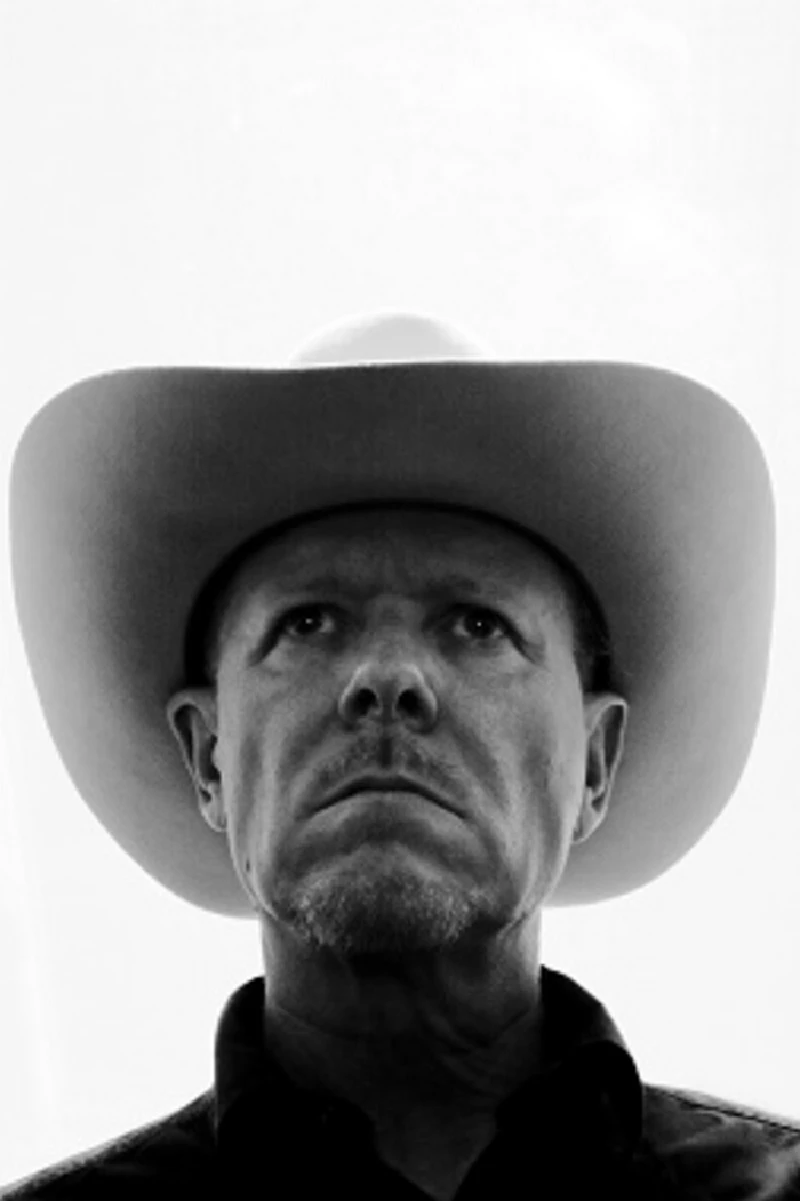
intro
Paul Waller talks to New York-based experimental musician Michael Gira about taking his abrasive band Swans back out on the road again and their recent album, 'The Seer'
Before November of last year, my knowledge of all things Swans was miniscule. I knew they were a band, I knew that much at least, and in 2005 when I saw Dinosaur Jr. in Florida I said to someone in the crush on the way out of the show, “Jesus, that was loud,” and this guy said to me, “You should’ve seen Swans.” After reading a great review of the band’s latest record late last year I Googled them, and in principle at least they sounded fantastic, so I bought their latest album which is called ‘The Seer’. Needless to say the seed that grows in a music fan when they fall in love with an artist afresh has blossomed in me. With each pay day I buy more of the back catalogue, and each time I get another album or EP it adds to the already exquisite body of work that I can listen to from the band. It turns out that Swans are today as unconventional and un-mainstream as they were when they began shortly after the birth of the New York no wave scene. There may be a huge difference in time and in musical space since they released their first album ‘Filth’ in 1983, but the essence remains the same. Swans do not compromise. When the opportunity arose to converse with Swans main man Michael Gira via a Skype link connecting Pennyblackmusic to his HQ in New York, I jumped at it. PB: As a newbie to Swans what initially drew me to the group was first of all a positive review of ‘The Seer’ in a magazine, and after an internet search on the band I found the following quote: “If anyone stage dives or moshes at one of our shows, I’ll stop the music. I really hate group identity rituals like that. They are just a microcosm, a little factory workshop exercise in conformism.” I truly identified with that statement. You said this in the 80s. Do you still feel the same way today? MG: Well yeah, if people do start doing that kind of thing I usually do stop the show, or I at least call out to whatever idiots are doing stuff like that. That’s probably a remnant of our previous, err, hostile relationship with our audience from the 1980s and 1990s. PB: It happens a lot in my town and the surrounding scenes, sometimes as soon as an audience is confronted with a distorted guitar. It’s depressing. MG: It’s just like a football match or something. Well, I went to punk gigs in the 70s in LA, but that shit didn’t really happen there. People were pogoing which is pretty harmless (laughs). When I moved to New York, I would go to the hardcore shows at CBGB, and that behaviour started up about then and it was just frightening beyond description. It was just so stupid and that’s probably where my perception of it comes from. I just thought that latter day punk and certain kinds of hard rock was basically like a training ground for, well, until you go to work at an office or something. There’s no thought. These days our shows are pretty overwhelming I suppose, and certainly the audience seems to receive it in a pretty intense way, but thankfully we don’t inspire that kind of behaviour. PB: Was there a point when you were watching punk and hardcore shows where you thought, “I can do this”, or even “I can do better than this”? MG: I already knew I could do better than that shit. Going to those punk shows in LA, I became rather nonplussed by that era. There was a lot of music and art in New York at the time that was pretty intense and interesting and not conventional by any stretch of the imagination, so I moved to New York thinking that would be a propitious proving ground with bands like Suicide, Teenage Jesus and the Jerks and the Contortions. It just seemed really powerful to me. It was emotionally raw, but without relying on the typical three chord punk structure and so I moved to New York. It took a long time for me to find my voice and the band to find its voice, but once we did I think we did a good job. PB: Even ‘Filth’ has an ominous finality to it. MG: Yet we went quite a distance and did a lot of different things. You can’t rely on troves. You develop and you have to put yourself on unfamiliar ground which is what we are still trying to do. PB: Is there a big fuck you! I’ll do what I want with Swans? MG: I don’t see Swans as a fuck you, I’ll do whatever I want kind of thing. I look at it as a very positive and joyous experience. PB: But you don’t play by conventional rules. MG: My heroes in life are people that decided to live that way such as, for instance, Jean Genet, Francis Bacon or even Genesis P-Orridge; they have all lived their lives through active imaginations. PB: The way the 80’s and 90’s press clung onto the mantra of “Swans are so loud and intense you will be sick if you watch them live.” The press was turning your live reputation into a gimmick. That must have infuriated you? MG: It’s such a cartoon perception of the music. What can you say though? That’s the music press. PB: You haven’t faced too much of that gimmicky press since the reformation though. MG: Yes, that is gratifying. I think that what has happened at least in terms of the audience that comes to see us is that with the advent of the internet being so ubiquitous now that the people that we would naturally gravitate towards, who like the kind of music or experience that we provide can find it, and it weeds out people that would just be reading the music magazines or looking for something trendy or something to just glom onto as an identity. So now people that really want the experience come. That has been an Elysian moment because there have been a lot of years with me banging my head against a wall, all kind of frustrated. We had an audience in the 90s certainly, but now people just really want the experience so we attempt to provide what we can do. PB: With me being a Swans newbie, I find myself each pay buying myself another record in your back catalogue. MG: Thanks, that’s great to hear. Thank you. I mean that’s how I got into music; it’s the best way to discover artists, just to slowly do it. It is the same with books. PB: The album that has struck me the deepest so far is in fact the most recent one, ‘The Seer’. Out of the seven Swans albums that I own it appears to be your most complete work, but you have said that it’s unfinished. What do you mean by that? MG: Well, it is a revelation that over the last four or five years I suppose that in actuality the music is never finished. It’s just in different states. For instance, most of the songs on that album began by my playing an acoustic guitar and singing a basic groove or melody in my room, and then I will take them to the band and we will patch them out for sometimes months on end in rehearsals, and gradually they morph into a Swans experience rather than just me with my acoustic guitar. That might be just one version of the music. We are constantly pushing the songs live. They are changing with each show and they are always developing and stretching. We find nuances in them and maybe we’ll discard parts and move on to something else even after the record has been recorded, so it is always in movement. Of course I struggle mightily to make that something that resembles a finished piece in the studio but anything more… I just look at it as that’s how it was then. Even the songs from ‘The Seer’ now that we are playing live are much different than what’s on the record and they keep growing. The song ‘The Seer’ itself has been known to have a duration of an hour live (Laughs). There are some moments on ‘The Seer’ album and moments on the last cycle of touring that I heard that were inspirational to me, and showed me a way to move forward. Those are these sorts of grooves we have been developing as a band so now we are really pushing that aspect. It doesn’t always work of course, but we always try to push it. It finds us rather than us finding it really. PB: That song with its lyric of “I see it all” has an ambiguous spirituality about it. MG: It is meant to be that way; it is not like the lyrics are telling a story. It is the singer, i.e. me I suppose, but really it is the singer inside this experience and hopefully the channelling of what it provides. When the music is really lit, when it reaches a high point, it feels like we are being lifted up to heaven inside of it and hopefully that translates to the audience as well. PB: Have you found time to work on a new record? MG: I have actually been writing and we have been working on material. What we do is that we have the basic structure of a song and then we take it and play it in front of an audience, like I mentioned, and then it grows and transforms just by attentive playing as a group in front of people. Half the set right now is new and unrecorded material that is still finding its voice, and the other half is things from ‘The Seer’ that are still finding their voice. They are always changing. PB: How much stock do you take in the fact that Swans have found a fan base once more and that the love for the band is still passionate, if not more devotional than it ever has been? MG: Uh…yeah but the thing is with accolades. Obviously they feel a little gratifying, but if you pay too much attention to them you start acting like a parrot and try to replicate that experience just like any Pavlovian dog would. It is great that more people love the shows and we have the ability to keep making music which is really what it’s about. PB: You have said that you are inspired by death and the fear of living a pointless life. MG: Hopefully that should be everyone’s credo (Laughs). We have a finite amount of time on earth, and I think it is important to find your potential and push yourself. Like everyone else I fall into rogue behaviour but, yeah, that is what I am looking for, particularly in the music live. It is a moment of complete abandon when all the work that you have done over the years just empties out and you have an experience that is the result from it. It can be fairly ecstatic live and I live for those moments. PB: Let’s talk about the band you created between both of these incarnations of Swans, Angels Of Light. Now Swans is back up and running, can you do both? MG: That band is on permanent hiatus… well not permanent, but it’s on hiatus. That first album, ‘New Mother’, is quite good; there are lots of great moments on it. Well, that’s what I think when I go back and listen to it which I rarely do because I am quite dissatisfied with my voice. That project was begun after I terminated Swans in the late 90s, and I wanted it to be centred around my ability to write a song on acoustic guitar, and sing it and have it be a strong experience, and then place orchestrations and everything after that fact. At that time I wanted that to be the way of working. I don’t know if I ever attained that level I should have as a singer but now Swans takes up all of my time. Even my record label, Young God Records, I don’t have time for now. I do the minimum possible. I put out Swans records but I can’t produce and work with other people’s music. Well, at this juncture anyway. PB: So where would you recommend a newbie like myself should have started with your vast back catalogue of music? Did I do it right to begin with ‘The Seer’? MG: Oh yes, absolutely. It contains a lot of elements from the past work but of course it is moving forward as well. I think that’s a good crucible, a good place to test yourself if you want to explore our music. Personally of course I am always interested in what is coming next. I have no idea whether it will live up to ‘The Seer’ or be worse, but the important thing for me is to try and be in a new place and experience a bit of surprise and joy in the music PBM: Finally is there any record I should avoid? MG: Oh, ‘The Burning World’, yeah. There are a few good songs on there, but I can’t stand my voice on it. It didn’t really gel. It was a tiptoe in the water towards a more Angels Of Light direction and I think it was an abysmal failure. I would avoid that. PBM: Got it, I will not spend my hard earned on that one then. Thank you so much for taking time out of your day to speak to us and we can’t wait to hear what Swans comes up with next. Swans will be touring the UK this coming April. Check www.swans.pair.com for details.
Band Links:-
https://www.facebook.com/SwansOfficialhttp://swans.bandcamp.com/
Picture Gallery:-
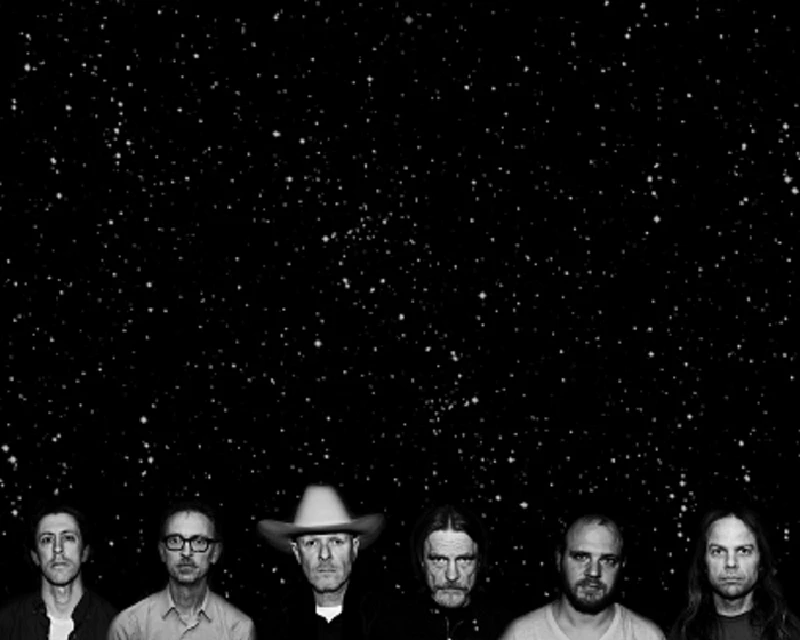
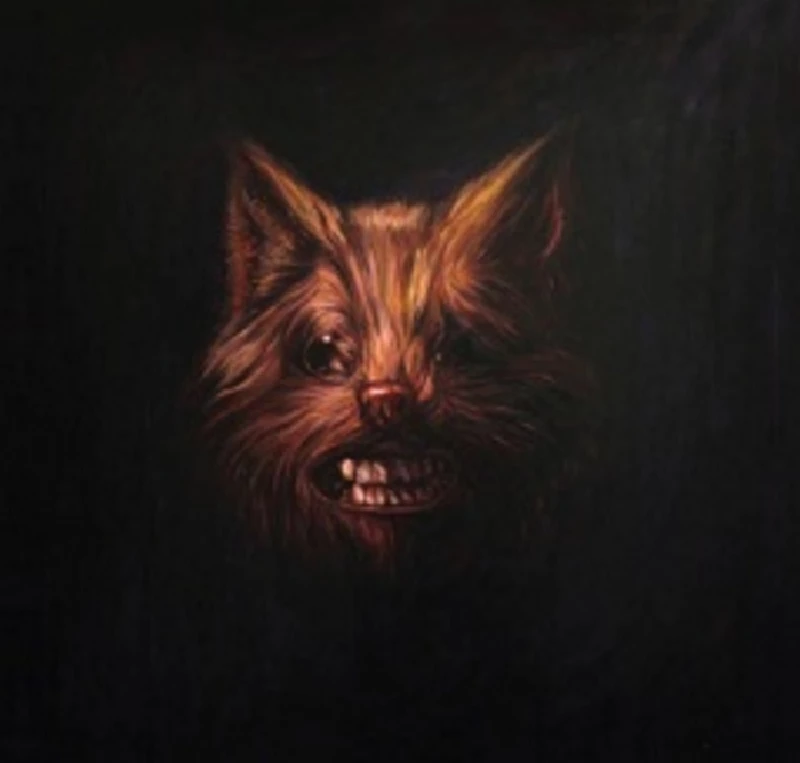
interviews |
|
Interview (2010) |
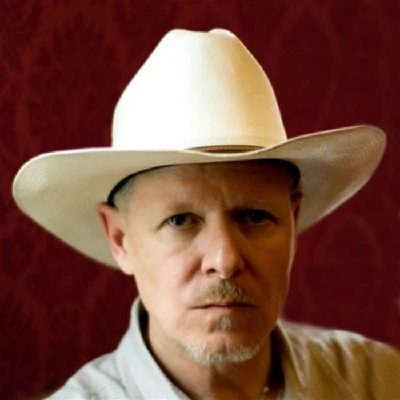
|
| Jamie Rowland talks to Michael Gira about his recent decision to reform his influential post-punk band Swans, the state of the music industry and his early years as a musician in New York |
| Interview (2010) |
live reviews |
|
KOKO, London, 15/11/2012 |
| Chrisn O' Toole watches reformed American post-punks Swans play an intense, but brilliant set at the KOKO in London |
| Academy, Manchester, 30/10/2010 |
soundcloud
reviews |
|
The Glowing Man (2016) |
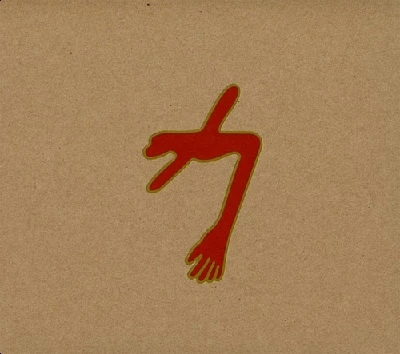
|
| Overwhelming but repetitive double album and the final one in the present line-up of Swans before it calls it a day |
| White Light from the Mouth of Infinity/ Love of Life (2016) |
| To Be Kind (2014) |
| The Seer (2012) |
| The Great Annihilator (2002) |
most viewed articles
current edition
Peter Doherty - Blackheath Halls, Blackheath and Palace Halls, Watford, 18/3/2025 and 21/3/2025Armory Show - Interview with Richard Jobson
Liz Mitchell - Interview
Lauren Mayberry - Photoscapes
Deb Googe and Cara Tivey - Interview
Max Bianco and the BlueHearts - Troubadour, London, 29/3/2025
Sukie Smith - Interview
Garfunkel and Garfunkel Jr. - Interview
Maarten Schiethart - Vinyl Stories
Clive Langer - Interview
previous editions
Heavenly - P.U.N.K. Girl EPBoomtown Rats - Ten Songs That Made Me Love....
Trudie Myerscough-Harris - Interview
Doris Brendel - Interview
Oasis - Oasis, Earl's Court, London, 1995
Beautiful South - Ten Songs That Made Me Love...
Dwina Gibb - Interview
Pulp - Ten Songs That Made Me Love...
Kay Russell - Interview with Kay Russell
Sound - Interview with Bi Marshall Part 1
most viewed reviews
current edition
Davey Woodward - Mumbo in the JumboNigel Stonier - Wolf Notes
Wings - Venus and Mars
Kate Daisy Grant and Nick Pynn - Songs For The Trees
Only Child - Holy Ghosts
Neil Campbell - The Turnaround
Philip Jeays - Victoria
Darkness - Dreams On Toast
Suzanne Vega - Flying With Angels
Charles Ellsworth - Cosmic Cannon Fodder
related articles |
|
Paul Simpson: Interview (2017 |
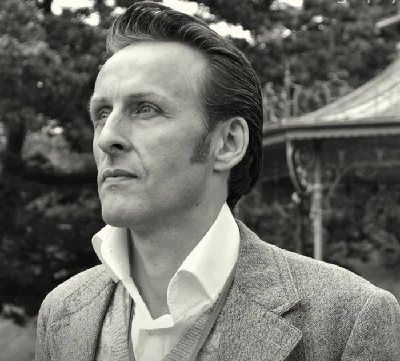
|
| Paul Simpson talks to John Clarkson about his forthcoming memoirs 'Incandescent', his post-punk group The Wild Swans and his memories of late 70's/early 80's Liverpool and its bands |
Pennyblackmusic Regular Contributors
Adrian Janes
Amanda J. Window
Andrew Twambley
Anthony Dhanendran
Benjamin Howarth
Cila Warncke
Daniel Cressey
Darren Aston
Dastardly
Dave Goodwin
Denzil Watson
Dominic B. Simpson
Eoghan Lyng
Fiona Hutchings
Harry Sherriff
Helen Tipping
Jamie Rowland
John Clarkson
Julie Cruickshank
Kimberly Bright
Lisa Torem
Maarten Schiethart